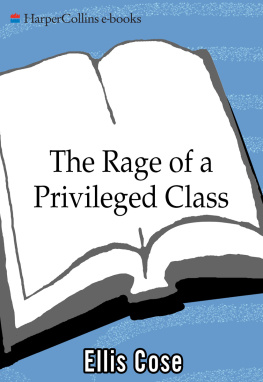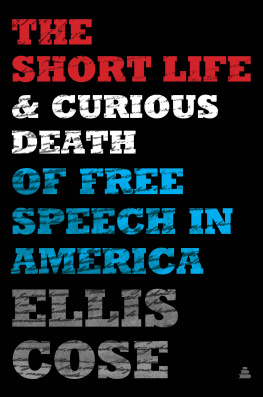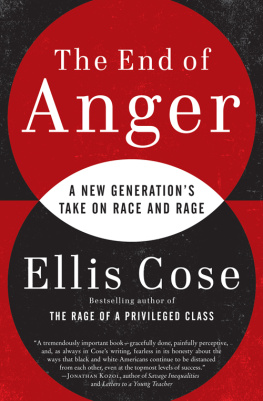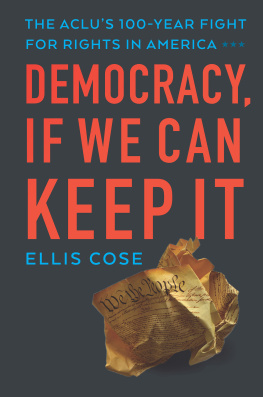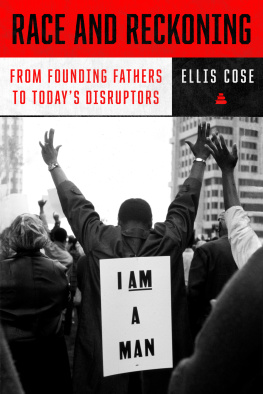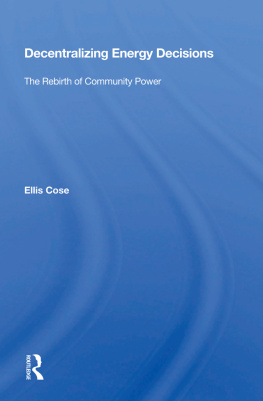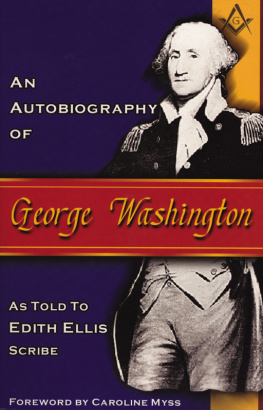Trapped in the dominant dialogue
The white race deems itself to be the dominant race in this country. And so it is, in prestige, in achievement, in education, in wealth, and in power. So, I doubt not, it will continue to be for all time, if it remains true to its great heritage and holds fast to the principles of constitutional liberty. But in view of the constitution, in the eyes of the law, there is in this country no superior, dominant, ruling class of citizens. There is no caste here. Our constitution is color-blind, and neither knows nor tolerates classes among citizens. The destinies of the two races, in this country, are indissolubly linked together, and the interests of both require that the common government of all shall not permit the seeds of race hate to be planted under the sanction of law .
J USTICE J OHN M ARSHALL H ARLAN DISSENTING IN P LESSY V , F ERGUSON , 1896
Freedom is about having a dream. And maybe I feel that particularly because the greatest Georgian of this century, Martin Luther King, went to the Lincoln Memorial and said in his extraordinary speech, I have a dream. And the dream he outlined is a dream for every American of every background to participate in creating an America that is better for our children and our grandchildren .
H OUSE S PEAKER N EWT G INGRICH AT THE 1996 R EPUBLICAN N ATIONAL C ONVENTION
This just says weve got to be color-blind. I do not believe I have any prejudicenever had in my opinion. I dont look at colorDr. King dedicated his life to the pursuit of equality and opportunity for all Americans. He believed all men should be judged by their character, not by the color of their skin .
L OUISIANA G OVERNOR M IKE F OSTER , J ANUARY 1996, ON SIGNING AN ORDER BANNING AFFIRMATIVE ACTION IN AGENCIES UNDER HIS CONTROL AND, ON THE SAME DAY, SIGNING A BILL DECLARING THE BIRTHDAY OF M ARTIN L ITHER K ING , J R., A STATE HOLIDAY
Martin Luther King, Jr., would probably be more astonished than anyone to hear that conservatives now claim him as one of their own, that they have embraced his dream of a color-blind world and invoke it as proof of the immorality of gender and racial preferences. But even if he had a bit of trouble accepting his status as a general in the war against affirmative action, he would appreciate the joke. And he would realize that it is the fate of the dead to be reborn as angels to the living.
King no doubt would be pleased to have new friends in his fight for justice, but he would approach them with caution, for he would recall, as he did for readers of Where Do We Go From Here: Chaos or Community? , that friendship has its limits. With Selma and the Voting Rights Act one phase of development in the civil rights revolution came to an end, he wrote.
A new phase opened, but few observers realized it or were prepared for its implications. For the vast majority of white Americans, the past decadethe first phasehad been a struggle to treat the Negro with a degree of decency, not of equality. White America was ready to demand that the Negro should be spared the lash of brutality and coarse degradation, but it had never been truly committed to helping him out of poverty, exploitation or all forms of discrimination. When Negroes looked for the second phase, the realization of equality, they found that many of their white allies had quietly disappeared.
After sharing his disappointment over past alliances with people whose commitment to change did not match his own, King would address his new associates bluntly. All right, he might say, understand why you oppose affirmative action. But tell me: What is your plan? What is your plan to crush the tragic walls separating the wealth and comfort of the outer city from the despair of the inner city? What is your plan to cast the slums of our cities on the junk heaps of history? What is your program to transform the dark yesterdays of segregated education into the bright tomorrows of high-quality, integrated education. What is your strategy to smash separatism, to destroy discrimination, to make justice roll down like water and righteousness flow like a mighty stream from every city hall and statehouse in this great and blessed nation? He might then pause for a reply, his countenance making it unmistakably clear that he would accept neither silence nor sweet nothings as an answer.
That King is now a hero to those on both sides of the anti-affirmative-action aisle is arguably a sign of progress. It is also a simple reflection of the fact that the ways in which we remember people often have more to do with our needs than with the actual focus of their existenceeven when those people are not nearly as famous as Martin Luther King, Jr.
Ada Lois Sipuel Fisher, for instance, is hardly a household name. Yet the New York Times presented her October 1995 obituary (Ada Fisher, 71; Broke a Law School Color Barrier) as a glorious parable of triumph and hope.
Mrs. Fisher was black, and that fact was paramount in her life or, at least, it was back in 1946, when, as an honors graduate of Langston College, she applied to the University of Oklahoma Law School. She was rejected but not deterred. Backed by the NAACP, she appealed her case to the Supreme Court, which ordered the state to provide her with a legal (though not necessarily an integrated) education. It took time, and there were setbacks, even an attempt by the state to accommodate Ada by setting up a separate black law school just for her. In the end, the state caved, but not exactly with grace. The school admitted her in 1949 but insisted that she sit in a raised chair behind a sign reading Coloredseparated in status and by space, chain, and a uniformed guard from the law schools white students. But those students were better than their elders. Whenever the guard took a break, they would climb under the chain and offer encouragement, Come on, Ada, they would say, weve been waiting for you.




